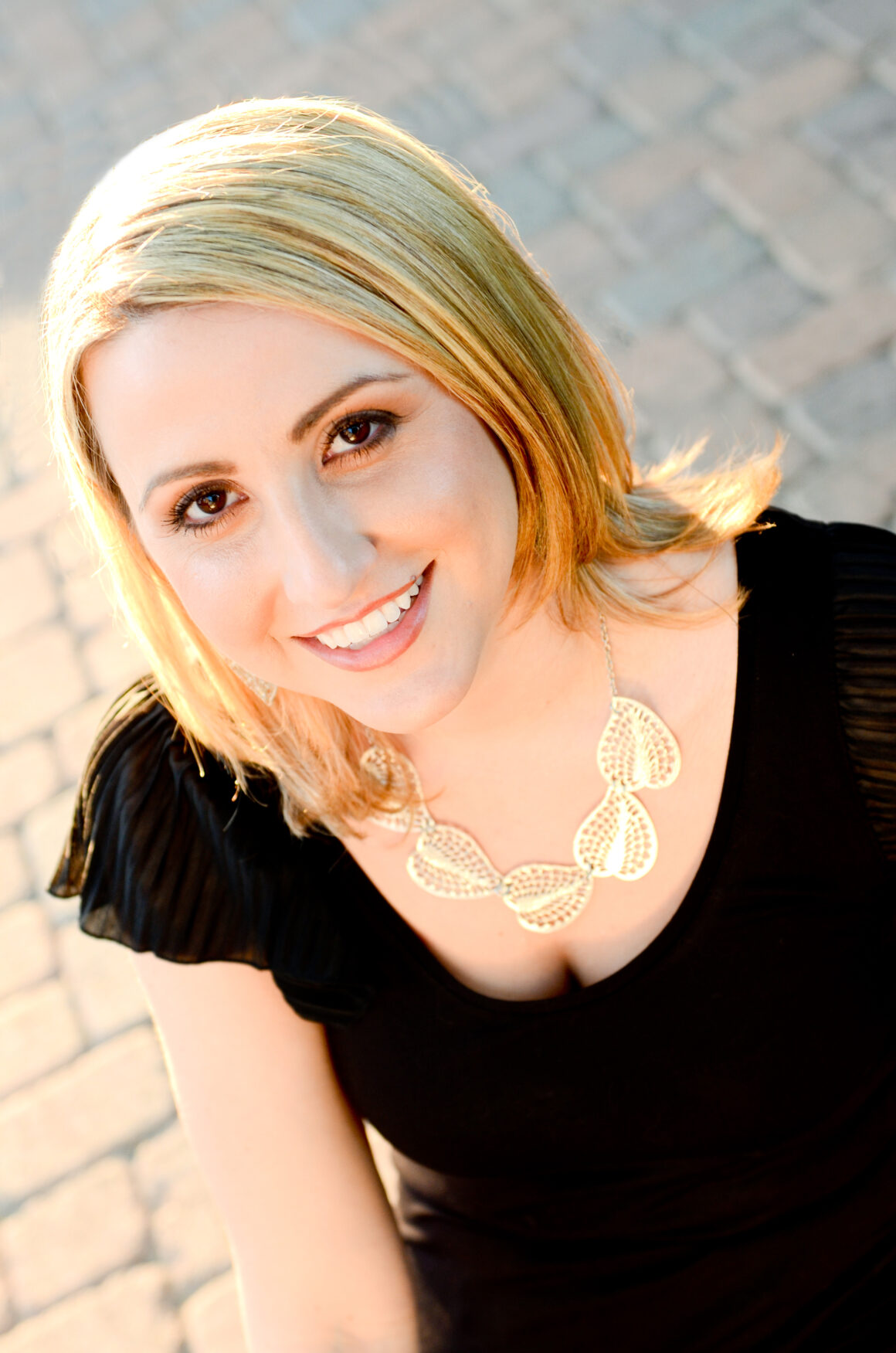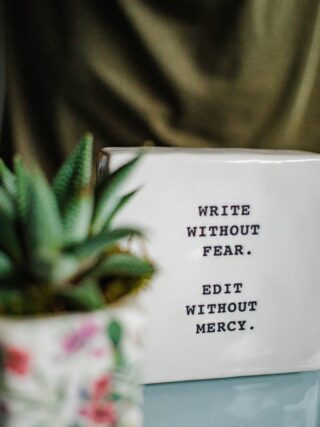I found out I was getting divorced November 5, 2018—the night before FLASHBACK (the seventh book in my Keeper of the Lost Cities series) released. I was zipping up my suitcase a little before midnight when my (now ex) husband came into the room to talk. And I only really remember two things about that conversation.
One: I finally understood why “you’d better sit down for this” is a cliché.
Second—and more importantly: I remember thinking, “I need to survive this.” Which became the theme of my year.
The first “this” was the fifteen-city, almost entirely sold-out book tour I had to leave for a few hours later.
Then coming home to a house that was now half empty—and one hundred percent in disarray.
Then there were divorce lawyers. And endless piles of paperwork. And the chaos of finding new rhythms and routines to juggle all of my new responsibilities.
But through all of that there was a much bigger “this” looming over me—the worry that kept me up at night, staring at the dark ceiling.
I owed my editor—and my readers—the next book in the Keeper series. And the absolute last thing I felt like doing was writing.
I told myself, “It’s good to be busy and lose myself in an imaginary world.”
But opening my laptop still felt exhausting.
And nothing inspired me.
All my usual go to’s (music, art, books) tended to upset me. And reading through my notes and idea journals was overwhelming.
It sounds melodramatic, but I felt as blank as the new word doc I’d forced myself to create.
So I tried setting an arbitrary “start-the-book” date. Even posted about it on social media to hold myself accountable. And yet, days later, I still had zero words.
At that point, I started to fear my creativity was “broken.” But thankfully, a writer friend stepped in and invited me to join a retreat that she and her friends were doing, promising it would be half writing time, half group therapy.
It was.
And while I still left the retreat with zero words in Keeper #8, I did manage to write a short story from one of the other character’s POVs. I even sent it to my editor, who was kind enough to read immediately and declare her love and excitement for it.*
Now I had proof that my creativity wasn’t broken.
I just needed to find the passion, confidence, and energy to dive back into the larger story.
And I decided that maybe the size of everything was throwing me off. The short story had felt small and manageable, so my brain had been willing to take it on. But Keeper 8 would be huge. The books in my series tend to be between 175,000-200,000 words, and writing one can feel like trying to sprint up a mountain, even under ideal circumstances.
So I decided to think smaller. Separate the obstacles into individual hurdles and climb my way over them one by one.
If I started to doubt my ideas for the plot, I sent my editor (who is truly a saint) long, rambly emails outlining the different possibilities—and her speedy replies were always thoughtful, enthusiastic, and supportive.
When I worried my overloaded brain was losing track of where I was at in the story, I’d listen to the audio versions of the previous books while I went to the gym. (side note on that: the gym became my sanctuary. I never realized how healing and empowering exercise was until this year).
I also scheduled lots of self-care time—something I’d always neglected before.
And slowly, with the help of old friends and new friends—and, of course family—the words started to flow.
One chapter.
Then two.
Three.
But there were still lots of “I don’t want to do this” days.
I wish I could say that I found some magical formula to get me through. But mostly it came down to reminding myself that I had a job to do, and that I owed it to my fans, my editor, and myself to finish the book in time.
Even if it meant working through the hard days.
Even if it meant a lot of sleepless nights.
Even if it meant needing a final desperate extension on my deadline.
And while I do my best to keep myself out of the books (the Keeper series is about Sophie, after all—not me) I don’t think it’s a coincidence that LEGACY turned into a story about facing challenges with confidence and fighting to stay focused on the bigger picture when life keeps throwing out personal distractions.
It’s also filled with scenes where Sophie is stronger and braver than she’s ever been before.
I hope my readers love it—they were constantly on my mind as I fought to survive the last year.
And now, as I come so very close to the “one year since everything changed” date, which happens to be LEGACY’s release day, I can happily echo the last line of the book—but I won’t say it here. (Would never give a spoiler like that.)
It’s an ending and a beginning (yes, also a cliffhanger—but my readers are definitely used to those by now).
And it’s my new theme.
I don’t have to “survive” anymore.
It’s time to start the next journey.
I found out I was getting divorced November 5, 2018—the night before FLASHBACK (the seventh book in my Keeper of the Lost Cities series) released. I was zipping up my suitcase a little before midnight when my (now ex) husband came into the room to talk. And I only really remember two things about that conversation.
One: I finally understood why “you’d better sit down for this” is a cliché.
Second—and more importantly: I remember thinking, “I need to survive this.” Which became the theme of my year.
The first “this” was the fifteen-city, almost entirely sold-out book tour I had to leave for a few hours later.
Then coming home to a house that was now half empty—and one hundred percent in disarray.
Then there were divorce lawyers. And endless piles of paperwork. And the chaos of finding new rhythms and routines to juggle all of my new responsibilities.
But through all of that there was a much bigger “this” looming over me—the worry that kept me up at night, staring at the dark ceiling.
I owed my editor—and my readers—the next book in the Keeper series. And the absolute last thing I felt like doing was writing.
I told myself, “It’s good to be busy and lose myself in an imaginary world.”
But opening my laptop still felt exhausting.
And nothing inspired me.
All my usual go to’s (music, art, books) tended to upset me. And reading through my notes and idea journals was overwhelming.
It sounds melodramatic, but I felt as blank as the new word doc I’d forced myself to create.
So I tried setting an arbitrary “start-the-book” date. Even posted about it on social media to hold myself accountable. And yet, days later, I still had zero words.
At that point, I started to fear my creativity was “broken.” But thankfully, a writer friend stepped in and invited me to join a retreat that she and her friends were doing, promising it would be half writing time, half group therapy.
It was.
And while I still left the retreat with zero words in Keeper #8, I did manage to write a short story from one of the other character’s POVs. I even sent it to my editor, who was kind enough to read immediately and declare her love and excitement for it.*
Now I had proof that my creativity wasn’t broken.
I just needed to find the passion, confidence, and energy to dive back into the larger story.
And I decided that maybe the size of everything was throwing me off. The short story had felt small and manageable, so my brain had been willing to take it on. But Keeper 8 would be huge. The books in my series tend to be between 175,000-200,000 words, and writing one can feel like trying to sprint up a mountain, even under ideal circumstances.
So I decided to think smaller. Separate the obstacles into individual hurdles and climb my way over them one by one.
If I started to doubt my ideas for the plot, I sent my editor (who is truly a saint) long, rambly emails outlining the different possibilities—and her speedy replies were always thoughtful, enthusiastic, and supportive.
When I worried my overloaded brain was losing track of where I was at in the story, I’d listen to the audio versions of the previous books while I went to the gym. (side note on that: the gym became my sanctuary. I never realized how healing and empowering exercise was until this year).
I also scheduled lots of self-care time—something I’d always neglected before.
And slowly, with the help of old friends and new friends—and, of course family—the words started to flow.
One chapter.
Then two.
Three.
But there were still lots of “I don’t want to do this” days.
I wish I could say that I found some magical formula to get me through. But mostly it came down to reminding myself that I had a job to do, and that I owed it to my fans, my editor, and myself to finish the book in time.
Even if it meant working through the hard days.
Even if it meant a lot of sleepless nights.
Even if it meant needing a final desperate extension on my deadline.
And while I do my best to keep myself out of the books (the Keeper series is about Sophie, after all—not me) I don’t think it’s a coincidence that LEGACY turned into a story about facing challenges with confidence and fighting to stay focused on the bigger picture when life keeps throwing out personal distractions.
It’s also filled with scenes where Sophie is stronger and braver than she’s ever been before.
I hope my readers love it—they were constantly on my mind as I fought to survive the last year.
And now, as I come so very close to the “one year since everything changed” date, which happens to be LEGACY’s release day, I can happily echo the last line of the book—but I won’t say it here. (Would never give a spoiler like that.)
It’s an ending and a beginning (yes, also a cliffhanger—but my readers are definitely used to those by now).
And it’s my new theme.
I don’t have to “survive” anymore.
It’s time to start the next journey.
I found out I was getting divorced November 5, 2018—the night before FLASHBACK (the seventh book in my Keeper of the Lost Cities series) released. I was zipping up my suitcase a little before midnight when my (now ex) husband came into the room to talk. And I only really remember two things about that conversation.
One: I finally understood why “you’d better sit down for this” is a cliché.
Second—and more importantly: I remember thinking, “I need to survive this.” Which became the theme of my year.
The first “this” was the fifteen-city, almost entirely sold-out book tour I had to leave for a few hours later.
Then coming home to a house that was now half empty—and one hundred percent in disarray.
Then there were divorce lawyers. And endless piles of paperwork. And the chaos of finding new rhythms and routines to juggle all of my new responsibilities.
But through all of that there was a much bigger “this” looming over me—the worry that kept me up at night, staring at the dark ceiling.
I owed my editor—and my readers—the next book in the Keeper series. And the absolute last thing I felt like doing was writing.
I told myself, “It’s good to be busy and lose myself in an imaginary world.”
But opening my laptop still felt exhausting.
And nothing inspired me.
All my usual go to’s (music, art, books) tended to upset me. And reading through my notes and idea journals was overwhelming.
It sounds melodramatic, but I felt as blank as the new word doc I’d forced myself to create.
So I tried setting an arbitrary “start-the-book” date. Even posted about it on social media to hold myself accountable. And yet, days later, I still had zero words.
At that point, I started to fear my creativity was “broken.” But thankfully, a writer friend stepped in and invited me to join a retreat that she and her friends were doing, promising it would be half writing time, half group therapy.
It was.
And while I still left the retreat with zero words in Keeper #8, I did manage to write a short story from one of the other character’s POVs. I even sent it to my editor, who was kind enough to read immediately and declare her love and excitement for it.*
Now I had proof that my creativity wasn’t broken.
I just needed to find the passion, confidence, and energy to dive back into the larger story.
And I decided that maybe the size of everything was throwing me off. The short story had felt small and manageable, so my brain had been willing to take it on. But Keeper 8 would be huge. The books in my series tend to be between 175,000-200,000 words, and writing one can feel like trying to sprint up a mountain, even under ideal circumstances.
So I decided to think smaller. Separate the obstacles into individual hurdles and climb my way over them one by one.
If I started to doubt my ideas for the plot, I sent my editor (who is truly a saint) long, rambly emails outlining the different possibilities—and her speedy replies were always thoughtful, enthusiastic, and supportive.
When I worried my overloaded brain was losing track of where I was at in the story, I’d listen to the audio versions of the previous books while I went to the gym. (side note on that: the gym became my sanctuary. I never realized how healing and empowering exercise was until this year).
I also scheduled lots of self-care time—something I’d always neglected before.
And slowly, with the help of old friends and new friends—and, of course family—the words started to flow.
One chapter.
Then two.
Three.
But there were still lots of “I don’t want to do this” days.
I wish I could say that I found some magical formula to get me through. But mostly it came down to reminding myself that I had a job to do, and that I owed it to my fans, my editor, and myself to finish the book in time.
Even if it meant working through the hard days.
Even if it meant a lot of sleepless nights.
Even if it meant needing a final desperate extension on my deadline.
And while I do my best to keep myself out of the books (the Keeper series is about Sophie, after all—not me) I don’t think it’s a coincidence that LEGACY turned into a story about facing challenges with confidence and fighting to stay focused on the bigger picture when life keeps throwing out personal distractions.
It’s also filled with scenes where Sophie is stronger and braver than she’s ever been before.
I hope my readers love it—they were constantly on my mind as I fought to survive the last year.
And now, as I come so very close to the “one year since everything changed” date, which happens to be LEGACY’s release day, I can happily echo the last line of the book—but I won’t say it here. (Would never give a spoiler like that.)
It’s an ending and a beginning (yes, also a cliffhanger—but my readers are definitely used to those by now).
And it’s my new theme.
I don’t have to “survive” anymore.
It’s time to start the next journey.
*The short story—told from Keefe’s POV—can be found in the paperback editions of FLASHBACK, which came out October 8, 2019.

SHANNON MESSENGER graduated from the USC School of Cinematic Arts where she learned—among other things—that she liked watching movies much better than making them, and realized her real passion was writing stories for children. She’s the New York Times and USA Today bestselling author of the award-winning middle grade series, Keeper of the Lost Cities, as well as the Sky Fall series for young adults. She lives in Southern California with an embarrassing number of cats. Visit her online and follow her on Twitter and Instagram.












